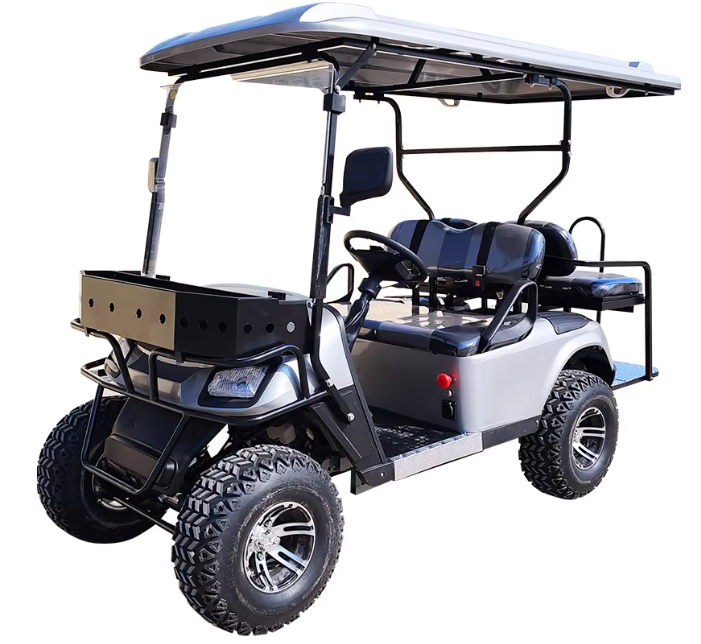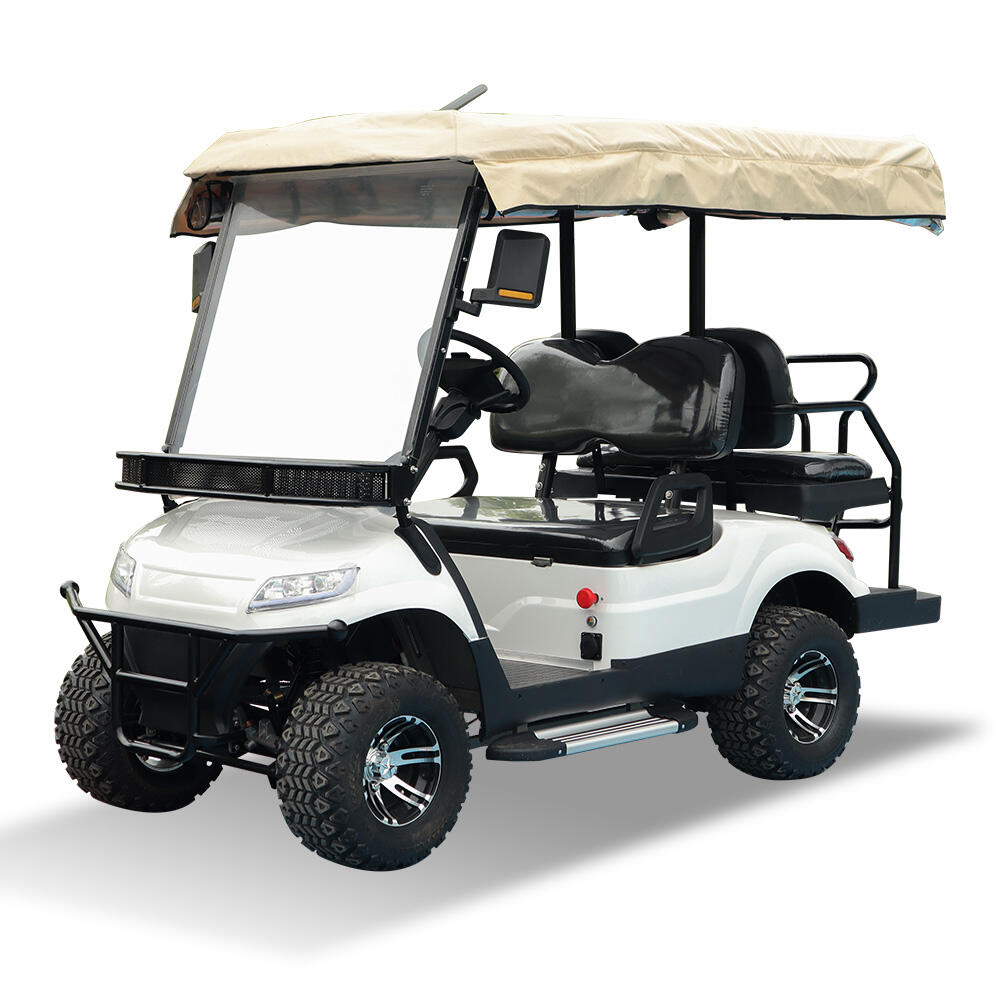Transforming Industrial Operations with Versatile Cargo Golf Carts
Industrial sites present unique challenges when it comes to efficient material transport and personnel movement. Golf carts with cargo capabilities have emerged as an innovative solution, combining the maneuverability of traditional golf carts with robust cargo-carrying features. These specialized vehicles are revolutionizing how businesses handle internal logistics, offering a perfect balance of utility and efficiency.
Modern industrial facilities span vast areas, making traditional transport methods time-consuming and labor-intensive. The introduction of cargo-equipped golf carts has created new opportunities for streamlining operations, reducing worker fatigue, and improving overall productivity. These versatile vehicles are becoming an indispensable asset across various industrial settings.
Essential Features of Industrial Cargo Golf Carts
Enhanced Cargo Capacity and Design
The most crucial aspect of golf carts with cargo capabilities is their thoughtfully designed storage space. Modern models feature reinforced beds capable of handling substantial loads, typically ranging from 800 to 1,200 pounds. These cargo areas are engineered with industrial-grade materials, ensuring durability under frequent heavy use.
Manufacturers have incorporated innovative design elements such as adjustable bed walls, tie-down points, and weather-resistant surfaces. These features enable secure transport of various materials while protecting cargo from environmental factors. The dimensional considerations allow for optimal space utilization without compromising the vehicle's maneuverability.
Power and Performance Specifications
Industrial golf carts with cargo capabilities are equipped with enhanced power systems to handle heavier loads. Electric models typically feature high-capacity batteries providing extended operational hours, while gas-powered versions offer the convenience of quick refueling for continuous operation.
These vehicles are designed with robust motors and reinforced drive trains, ensuring reliable performance even when fully loaded. Advanced suspension systems help maintain stability and comfort, while precision steering mechanisms enable easy navigation through tight spaces and around obstacles.

Applications Across Industrial Environments
Manufacturing Facility Solutions
In manufacturing settings, golf carts with cargo capabilities serve multiple essential functions. They efficiently transport raw materials between storage areas and production lines, reducing manual handling and minimizing production delays. These vehicles are particularly valuable in facilities with multiple buildings or extensive floor plans.
Quality control teams utilize these carts to transport testing equipment and samples throughout the facility. The cargo space accommodates specialized tools and documentation, enabling mobile inspection stations that enhance operational efficiency.
Warehouse and Distribution Centers
Warehouse operations benefit significantly from the integration of cargo golf carts. These vehicles excel in order picking operations, allowing workers to collect and transport multiple orders simultaneously. The compact design enables easy navigation through narrow aisles while maintaining substantial carrying capacity.
In distribution centers, these carts facilitate quick transfers between shipping and receiving areas. Their ability to move both personnel and materials makes them invaluable for supervision and inventory management tasks.
Safety and Maintenance Considerations
Safety Features and Protocols
Modern golf carts with cargo capabilities incorporate numerous safety features essential for industrial environments. These include automatic braking systems, backup alarms, and enhanced lighting packages for improved visibility. Many models also feature speed governors to maintain safe operation in confined spaces.
Proper training programs ensure operators understand load distribution, turning dynamics, and safe operating procedures. Regular safety inspections and maintenance checks help prevent accidents and maintain optimal performance levels.
Maintenance Requirements and Schedules
To ensure longevity and reliable performance, cargo golf carts require systematic maintenance. Regular inspections should focus on critical components such as batteries, brake systems, and cargo bed integrity. Establishing a preventive maintenance schedule helps identify potential issues before they affect operations.
Documentation of maintenance activities and repair history enables proper fleet management and helps optimize vehicle lifecycle costs. Training maintenance staff in specific requirements of these vehicles ensures proper care and extended service life.
Environmental and Economic Benefits
Sustainability Advantages
Electric golf carts with cargo capabilities offer significant environmental benefits. Their zero-emission operation helps organizations meet sustainability goals while improving indoor air quality. The reduced noise pollution creates a more comfortable working environment and minimizes impact on surrounding areas.
These vehicles contribute to reduced carbon footprints through efficient energy consumption and minimal waste generation. Their long operational life and recyclable components align with modern environmental stewardship practices.
Cost-Effectiveness Analysis
Investment in cargo golf carts delivers substantial economic returns through various channels. Reduced labor costs, improved efficiency, and lower maintenance requirements contribute to favorable total cost of ownership. The versatility of these vehicles allows organizations to consolidate their equipment fleet, leading to additional cost savings.
Operational costs remain competitive, particularly for electric models, with minimal energy consumption and reduced maintenance requirements compared to traditional industrial vehicles. The durability and reliability of modern cargo golf carts ensure extended service life and strong return on investment.
Frequently Asked Questions
What is the typical lifespan of a cargo golf cart in industrial use?
With proper maintenance and regular servicing, industrial cargo golf carts typically last 8-10 years in heavy-duty applications. Electric models often show longer operational life due to fewer moving parts and simpler maintenance requirements.
How do weather conditions affect cargo golf cart operations?
While basic models are designed for fair weather, many industrial cargo golf carts come with weather protection features including enclosed cabs, windshields, and weather-resistant cargo covers. These additions enable year-round operation in various environmental conditions.
What charging infrastructure is needed for electric cargo golf carts?
Standard electrical outlets (120V or 240V) are typically sufficient for charging electric cargo golf carts. However, facilities should plan for dedicated charging stations with proper ventilation and safety features, especially when operating multiple vehicles.
How does cargo capacity compare to traditional utility vehicles?
While cargo golf carts may have lower absolute capacity compared to full-sized utility vehicles, their efficient design and maneuverability often result in higher practical utility for many industrial applications. Most models offer 800-1,200 pound cargo capacity, suitable for most internal logistics needs.




